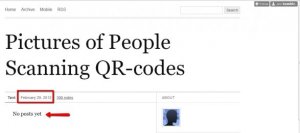- Dec 30, 2009
- 1,883
- 480
- First Name
- Yago
Yes, a lawyer from Harvard. That should tell you all you need to know.
I am convinced that most dealers are not interested. They might read it but it is another thing for them to implement it.
I was on a website, this morning. I looked at their new and used car special pages and incentive page and they were blank. Looking at their used cars, they only had 7 pictures and no descriptions. I looked for them on AutoTrader and they were an Alpha dealer but the new cars were listed on the 7th page in the featured section. Again, no descriptions. New cars were at MSRP. Used cars were without descriptions and priced out of market. Why spend the money?
You know how Jerry does the phone shopping? One of the companies, that I represent, does the same thing with emails. You get a report with all of the responses, response times etc.. You still see dealerships that never contact the customer, don't answer the questions, don't quote a price, response times in hours and days, "one and they're done" responses. Wonder why customers become non-responsive? They figured your guy was an idiot after the first response. Dealers want to look at what the competition's templates and prices look like but when they see the rest, they often come unhinged. Remember those nightmare internet reports from the manufacturers? It ain't any better.
But in the end... many dealers sell cars and stay afloat anyway, right?
Or is it that this new change that we face (technology implemented into the small business) has not had enough time to destroy the business that stays behind?
Will the landscape change dramatically a few years from now number of dealers wise as the start and powerful ones absorb the others?
The crisis has been an eye opener to the fact that it took a lot of dealers out but not based on make, or location, or on other factors that we may want to see. The crisis took right away those with weak digital strategies and with teams of people that could not react fast enough for the changes.
I truly believe that even though we feel we know a lot we don't know much because this is just the beginning of the change from old to new in how automotive dealers run.









